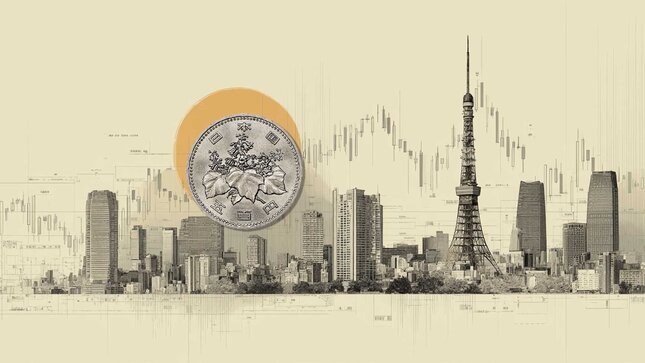After reviewing all potential transmission channels through which monetary policy affects the economy, the priorities a Central Bank can have, the indicators usually monitored, and what unconventional monetary policy does, it is finally time to examine how monetary policy affects exchange rates and the stock market.
To begin with, remember that interest rates set the return an investor should have from putting his money in a bank. As I elaborated in the first post, the higher the policy rate the higher the bank interest rate should be. Hence, an investment in a country with a higher interest rate should, other things being equal, provide a higher rate of return for investors. Consequently, more demand for the currency should be observed, as more investors seek to increase exposure in that country, in essence trying to exploit this interest rate differential through the carry trade. More demand for the currency should thus lead to an exchange rate appreciation.
As policymakers understand that higher interest rates tend to cause an exchange rate appreciation, they tend to exploit this to protect their currencies. For example, the 0.25% interest rate hike in Russia on September 14, 2018 caused an approximately 4% appreciation in the exchange rate. As such, Central Banks could preemptively manipulate interest rates to prevent exchange rate depreciation, especially in the case of Emerging Economies where the depreciation is usually caused by deteriorating macroeconomic conditions. This is the reason behind the surge in the Argentinian policy rate to 60%, as the Central Bank aimed at preventing the exchange rate from depreciating further. Overall, the general conclusion is that higher interest rates tend to suggest that the currency will appreciate, however, this does not always hold. For example, Switzerland has imposed negative interest rates on its currency in order to avoid appreciation but the CHF has nonetheless been appreciating as it has acquired a ‘safe haven’ status.
Monetary policy is also expected to have an effect on the stock market, which is usually the opposite of what is observed for the currency markets. An increase in policy rates should mean that lending costs for firms and consumers are increasing. As such, both consumers and firms will have higher expenses which will go directly to the banking sector and not to the real economy. The decrease in consumers’ purchasing power should mean that they will spend less on goods and services, if they aim to save the same percentage of their income. This should decrease firms’ income which, combined with increased lending costs, should deteriorate business profits. As a result of decreased profits, the stock market is also expected to register declines. Note, however, that if consumers do not maintain a steady savings ratio then the impact on the stock market is not expected to be as large; a likely scenario in this case is that the stock market would drop but rebound in the future.
The same conclusions should hold regardless of whether conventional or unconventional monetary policy is followed. The only difference in forward guidance is that the future increases/decreases in policy rates should be discounted in the market, at least to some extent, and hence reactions should not be as large. This should also hold with asset purchases, as these raise the availability of the specific currency in the world (i.e. increase the supply), which should mean that, with demand remaining the same, the exchange rate should depreciate. In contrast, if the Central Bank starts selling the assets it has acquired, then supply of the currency will decrease and the exchange rate should rise.
With regards to the stock market, asset purchases should increase liquidity in the economy, a large part of which should be invested in the stock market and hence push prices up. If the Central Bank starts selling bonds to retrieve currency from circulation, then the effect on the stock market will depend on agents’ perceptions: if they feel that it is to their best interest to purchase government bonds relatively cheaply and wait for their payment, then funds will exit the stock market and cause a drop; if they feel that the potential for a rise in the stock market is higher than the yield on government bonds then this should not have a strong effect on the stock market.
Overall, this article, which emphasises that monetary policy is an important determinant of exchange rates and the stock market, marks the end of our series on what monetary policy actually does. However, more is to come on the fiscal side, as the next article will elaborate on what fiscal policy actually does. Stay tuned!
Editors’ Picks

EUR/USD: US Dollar to remain pressured until uncertainty fog dissipates Premium
The EUR/USD pair lost additional ground in the first week of February, settling at around 1.1820. The reversal lost momentum after the pair peaked at 1.2082 in January, its highest since mid-2021.

Gold: Volatility persists in commodity space Premium
After losing more than 8% to end the previous week, Gold (XAU/USD) remained under heavy selling pressure on Monday and dropped toward $4,400. Although XAU/USD staged a decisive rebound afterward, it failed to stabilize above $5,000.

GBP/USD: Pound Sterling tests key support ahead of a big week Premium
The Pound Sterling (GBP) changed course against the US Dollar (USD), with GBP/USD giving up nearly 200 pips in a dramatic correction.

Bitcoin: The worst may be behind us
Bitcoin (BTC) price recovers slightly, trading at $65,000 at the time of writing on Friday, after reaching a low of $60,000 during the early Asian trading session. The Crypto King remained under pressure so far this week, posting three consecutive weeks of losses exceeding 30%.

Three scenarios for Japanese Yen ahead of snap election Premium
The latest polls point to a dominant win for the ruling bloc at the upcoming Japanese snap election. The larger Sanae Takaichi’s mandate, the more investors fear faster implementation of tax cuts and spending plans.
RECOMMENDED LESSONS
Making money in forex is easy if you know how the bankers trade!
I’m often mystified in my educational forex articles why so many traders struggle to make consistent money out of forex trading. The answer has more to do with what they don’t know than what they do know. After working in investment banks for 20 years many of which were as a Chief trader its second knowledge how to extract cash out of the market.
5 Forex News Events You Need To Know
In the fast moving world of currency markets where huge moves can seemingly come from nowhere, it is extremely important for new traders to learn about the various economic indicators and forex news events and releases that shape the markets. Indeed, quickly getting a handle on which data to look out for, what it means, and how to trade it can see new traders quickly become far more profitable and sets up the road to long term success.
Top 10 Chart Patterns Every Trader Should Know
Chart patterns are one of the most effective trading tools for a trader. They are pure price-action, and form on the basis of underlying buying and selling pressure. Chart patterns have a proven track-record, and traders use them to identify continuation or reversal signals, to open positions and identify price targets.
7 Ways to Avoid Forex Scams
The forex industry is recently seeing more and more scams. Here are 7 ways to avoid losing your money in such scams: Forex scams are becoming frequent. Michael Greenberg reports on luxurious expenses, including a submarine bought from the money taken from forex traders. Here’s another report of a forex fraud. So, how can we avoid falling in such forex scams?
What Are the 10 Fatal Mistakes Traders Make
Trading is exciting. Trading is hard. Trading is extremely hard. Some say that it takes more than 10,000 hours to master. Others believe that trading is the way to quick riches. They might be both wrong. What is important to know that no matter how experienced you are, mistakes will be part of the trading process.
The challenge: Timing the market and trader psychology
Successful trading often comes down to timing – entering and exiting trades at the right moments. Yet timing the market is notoriously difficult, largely because human psychology can derail even the best plans. Two powerful emotions in particular – fear and greed – tend to drive trading decisions off course.


